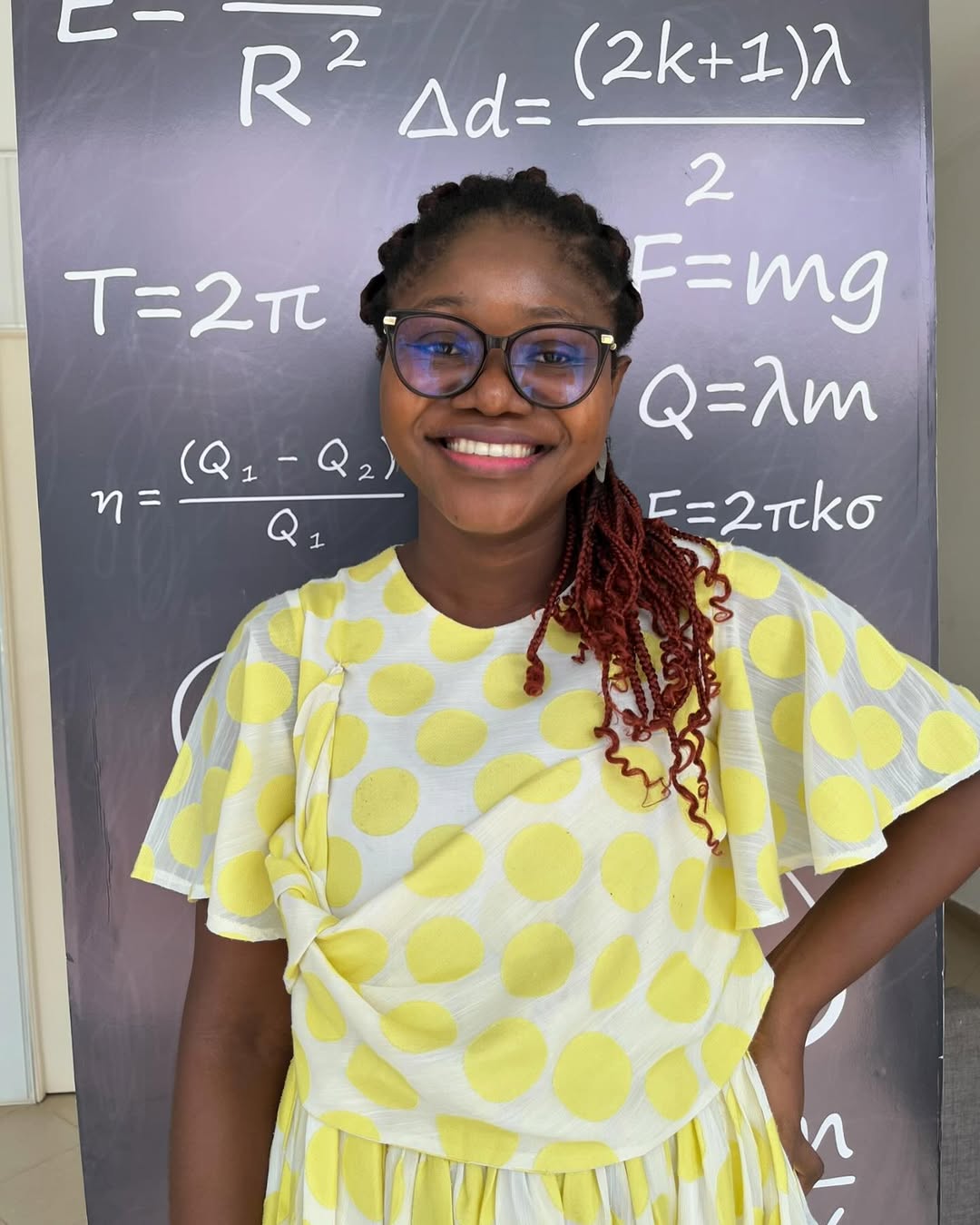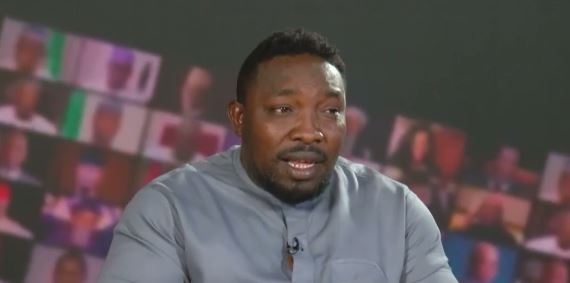Dr Angela Tabiri, a 35-year-old Ghanaian mathematician, is on a mission to make mathematics a subject that more African women embrace and love. Last year, she achieved global recognition when she won The Big Internet Math Off competition, organised by The Aperiodical magazine. Angela beat 16 accomplished mathematicians, including Matt Enlow in the fianl round, to earn the title of The World’s Most Interesting Mathematician.
Often described as “Ghana’s Maths Queen,” Angela Tabiri’s passion for mathematics shines through her work and achievements. A 2014 alumna of the African Institute for Mathematical Sciences (AIMS) Ghana, she shares that she “finds joy in solving puzzles and mathematical questions.”
Angela’s journey into mathematics wasn’t straightforward. Growing up in Ashaiman, a bustling neighbourhood in Tema, Ghana, she lived in a happy but noisy home with five sisters. To focus on her studies, she often sought refuge in the quiet of the local youth community centre. Initially, Angela aspired to study business administration, like two of her sisters. However, her grades, while excellent, weren’t high enough to secure a place in that programme. Instead, she was admitted to study mathematics and economics—a decision she now calls “a blessing in disguise.”
Her perspective on mathematics began to shift as she delved deeper into the subject. This transformation was solidified when, in 2015, she watched “Hidden Figures” while pursuing her PhD in mathematics at the University of Glasgow, UK. The film, which tells the story of Black American women mathematicians at NASA in the 1950s, left a profound impact on Angela. “It was amazing seeing the story of these Black women told on that global stage,” she recalls. “I had a lot of goosebumps watching it.” Katherine Johnson, one of the film’s central figures, became a particular source of inspiration for Angela, with her groundbreaking calculations crucial to NASA’s space missions.
Angela’s PhD studies at the University of Glasgow were made possible by the prestigious Schlumberger Foundation Faculty for the Future Fellowship, awarded in 2015 to exceptional female students who inspire young women to pursue careers in science. During her PhD, she co-authored a paper titled “The Nodal Cubic is a Quantum Homogeneous Space,” which gained international recognition among mathematicians working in quantum algebra—a field combining quantum theory with topology. In June 2019, she graduated with a PhD in Mathematics.
Today, Angela is a Research Associate specialising in quantum algebra and serves as the Academic Manager for the Girls in Mathematical Sciences Programme (GMSP) at AIMS-Ghana. Through GMSP, she nurtures the talents of secondary school girls across Ghana, unlocking their potential in mathematical sciences. She also organises Science Slam Ghana, a fun and engaging event where researchers present their work to lay audiences.
In addition to her professional roles, Angela is committed to empowering girls and women from less privileged backgrounds through her non-profit organisation, FemAfricMaths. Alongside other volunteers, she offers in-person and online lessons to inspire and guide high school students in mathematics.
Angela is also passionate about the transformative potential of quantum science and technology, a field deeply rooted in mathematics. She is proud of Ghana’s leadership, alongside Mexico, in championing the proposal for 2025 to be declared the UN International Year of Quantum Science and Technology, marking the 100th anniversary of modern quantum mechanics.
























